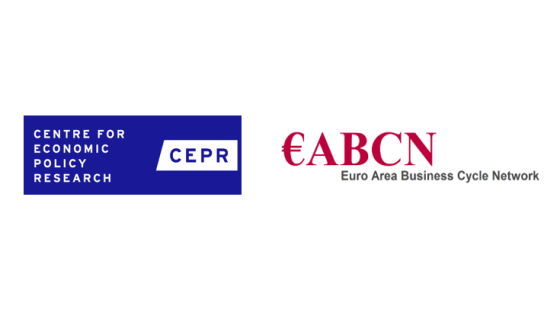

Search the site

The CEPR-EABCN Euro Area Business Cycle Dating Committee deliberated on 13 March 2024 to assess the state of euro area economic activity, relying on data through the fourth quarter of 2023. GDP growth was a whisper below zero in the last two quarters of 2023.
The committee, using a broad array of information, including its output gap measures, does not label the current period as a recession. The overall pattern of stagnation persists, with limited movement across sectors or components of domestic final expenditure. The output stagnation is taking place amid continued growth in employment, which has nudged the unemployment rate lower from an already historically low level. Given the evolution of output and employment, labour productivity moved further along its negative trajectory in 2023.
The full statement of the CEPR-EABCN Euro Area Business Cycle Dating Committee is available here.
The CEPR-EABCN Euro Area Business Cycle Dating Committee establishes the chronology of recessions and expansions of the eleven original euro area member countries plus Greece for 1970-1998, and of the entire euro area from 1999 onwards.
It also comments, in the spring and in the fall, on the current state of aggregate economic activity in the euro area and launches research initiatives designed to better monitor and understand aggregate economic developments in the euro area.
Dating activities and bi-annual statements on the state of euro area economic activity are conducted in total independence of EABCN. Research initiatives launched and pursued by the Committee are subject to the approval and evaluation of the EABCN Scientific Committee.
The Committee’s research assistant and rapporteurs are Mahmut İpek and Senem Turan, Bilkent University.